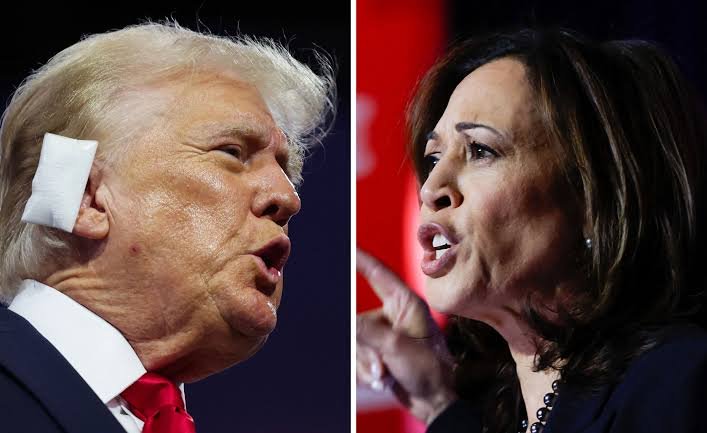Arab American group refuses to endorse Harris, Trump states reason

The Arab American Political Action Committee (AAPAC) has declared that it will not endorse either Democratic Vice President Kamala Harris or Republican former President Donald Trump in the upcoming November 5 US elections.
AAPAC’s decision stems from the candidates’ unwavering support for Israel’s military actions in Gaza and Lebanon, which the committee views as unacceptable.
This stance marks a departure from AAPAC’s traditional endorsement of Democratic candidates, and it’s the first time the organization has refrained from endorsing a candidate since its inception in 1998.
Also Read: Deadly Israeli air raids hit Christian town in Lebanon, several casualties reported
The move reflects the growing disillusionment among Arab and Muslim Americans with US foreign policy, particularly regarding Israel. Despite historically supporting Democrats, this constituency has become increasingly vocal in its opposition to US backing of Israel.
Recent polls indicate a tight race between Harris and Trump, and analysts suggest that AAPAC’s decision could impact Harris’ chances. If Arab and Muslim Americans choose not to vote or opt for a third-party candidate, it could potentially harm Harris’ electoral prospects.
Many members of these communities have personal connections to the conflicts in Gaza and Lebanon, having lost relatives or been affected by the violence. As a result, they have urged supporters not to vote for either Trump or Harris.
However, some advocacy groups, such as Emgage Action, have chosen to endorse Harris, citing Trump as a greater threat. This division highlights the complexity of the issue and the varying perspectives within the Arab and Muslim American communities.
Israel has rejected genocide allegations at the World Court, claiming self-defense following Hamas’ October 7, 2023, attack that killed 1,200 and took 250 hostages. In response to the attack, Israeli air raids have killed more than 42,000 people in Gaza, according to the local health ministry, and over 2,000 in Lebanon, as reported by the Lebanese government.
Israel’s military actions in Gaza have led to widespread displacement and a hunger crisis, while its targeting of Iran-backed Hezbollah militants in Lebanon has exacerbated tensions in the region. The situation remains complex and volatile, with ongoing diplomatic efforts seeking a resolution.







